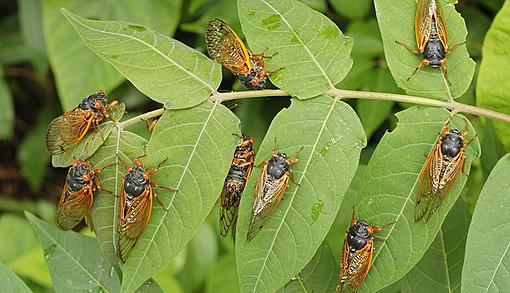Brood X's insects are digging out of ลองเล่นสล็อตฟรี underground homes in 15 U.S. states, including Washington, D.C. Get ready for the hustle and bustle Parts of the eastern United States will soon see a breathtaking sight: billions of cicadas that emerged from underground for the first time since 2004 to swarm the outdoors and share their matchmaking calls.The term cicadas are known to spend most of their lives a foot or two underground, living on the sap of the tree roots. Then, in the spring of the 13th or 17th year, the adult cicada nymphs dig out of the ground for a short,
simultaneous adult stage in large numbers. The numbers are really enormous.The newly born phase cicadas are released from the exoskeleton and spread their wings. Soon it will be time to breed.The insect climbs to the nearest vertical surface, usually root-supported trees. They loosened their skeletons and wings. Then a few days to recuperate and wait for the crust to fertilize to begin. The madness is impossible to miss when the male starts making high-pitched mating chants.
This happens through a structure that produces a sound called a thymbe on either side of the abdomen.They may gather in parks, forests, neighborhoods, and seem to be everywhere," explains Michigan State University entomologist Gary Parsons in an MSU question and answer session about the phenomenon. "When they are abundant, they will fly, land and crawl everywhere.Here are answers to some of the top questions about the big cicadas this spring.
What is the Brood X?
The eastern part of the United States is home to six intermittent cicadas, which have emerged over the years. A group of cicadas of the same year of birth are called hybrids.This spring will be time when a member of one of the largest cicadas, 17, called the Brod X, or the Eastern Brod, must burrow out of an underground hideout and show off a black body and eyes. Their dark red color Expect to see all three 17-year-old species: Magicicada septendecim, Magicicada Cassini, and Magicicada septendecula.
Which state will be affected?
Some of the 15 states, like Washington, D.C., will hear romantic male voices on trees to attract women.States include Delaware, Georgia, Illinois, Indiana, Kentucky, Maryland, Michigan, North Carolina, New Jersey, New York, Ohio, Pennsylvania. Chania, Tennessee, Virginia, and West Virginia




 LinkBack URL
LinkBack URL About LinkBacks
About LinkBacks

 Reply With Quote
Reply With Quote








